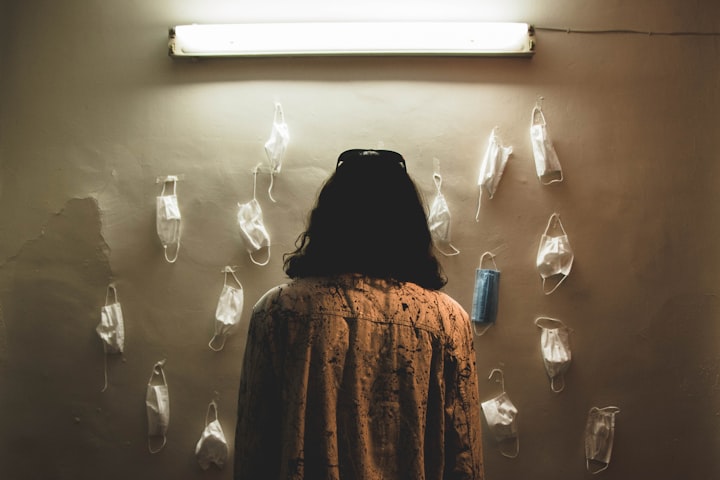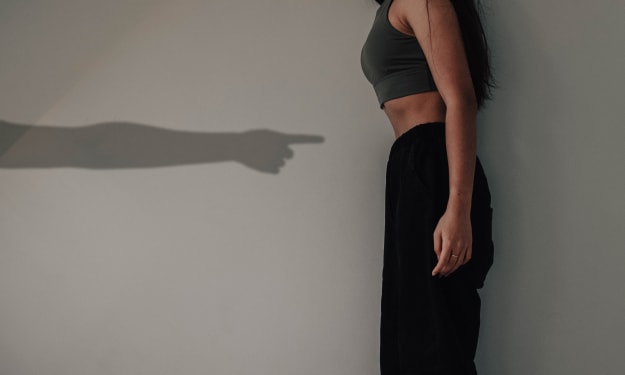Vaccination Day
Faced with the desperate need for relief, essential workers struggle to find their place in line.

The call came late Thursday afternoon.
“Tomorrow 8am. You’re all on the list.”
Words of relief. A culmination of ten months of anxiety, uncertainty, and fear, all waiting for this moment. Filled with high expectations. A sign of the end of worries, and a return to normal life.
And with it, a familiar uneasy sense of comfort.
After a brief moment of reprieve, the spiral of doubt takes over the news of receiving the vaccine. Why now? The unfamiliar urgency to prioritize workers instills new levels of discomfort.
What it Means to be Essential
Deemed essential, you feel indispensable. Like a sacrificial lamb in the fight to maintain society's normalcy. Health officials, the media, and everything around you says to stay at home and distance yourself. Instead, you willingly immerse yourself in dangerous environments in the service of others.
There is a numbness you feel being a front-line worker. You are exposed to the reality of the world every day. Numbing becomes your coping mechanism. Fears, uncertainty, anxiety, are shared with the rest of the world, but yours, are confronted and forced down every day.
As a service worker in any field, from healthcare and food service to transportation and construction, your role is to be a caretaker. To preserve an aspect of humanity and the daily routine of life.
Duty to be the Calm in Chaos
Essential workers are proclaimed critical in the fight on this invisible war. The threat of not only the virus but the disruption of our everyday way of life. Yet the only protection offered was your own sense of duty. To yourself, your family, and the people you serve.
The world applauded frontline workers from the safety of their homes, at the same time they hoarded the essential items needed for workers to arm themselves against our enemy.
There is no WFH Privilege
Your livelihood is being face-to-face, or better yet, mask-to-mask. Your job is to be the image of comfort, stability, and resilience to those around you. Providing a sense of calm despite the chaos, and to be the reminder that everything will be ok, eventually.
Every interaction becomes risky business. The blurred line between making people feel at ease and telling them to stand six feet back becomes a formidable task. The more you comfort others, the more their guard, and mask, comes down.
To be the distraction from the despair of the situation opens you up to the endless opportunity to exposure. In a world where everyone just wants to feel normal, often it's forgotten you are just trying to survive.
The Underlying Question:
My health (and my family's) or my paycheck?
If you survived layoffs, then you were faced with a daunting decision. Leave your somewhat steady income for health and safety or remain loyal and expose yourself and your family.
Unemployment seemed like the more prosperous and secure route. Many saw they would earn more money from the safety of their home than in the uncertainty of their hourly work. Ultimately, neither provide guaranteed security.
The Unexpected Role as Enforcer
Managing the expectations and anxiety of others is always a part of a service role. The Pandemic took it to a new level. When stores ran out of toilet paper and hand sanitizer, it was the workers who met the fears and outrage of the customer, not the Government.
They became enforcement of policies and went head to head with the opposition. Policing people to wear their masks and distance themselves from each other, which was met with volatile resistance.
Preserving Human Life or the Pleasures that Makes us Human?
Service workers are historically underpaid, undervalued, and unrecognized. In the Pandemic, they have blindly taken on a new role in keeping society intact.
Yet, much debate has sparked over who should be prioritized in vaccination.
Opinions like this one, stating professional athletes should receive preferential treatment because they pay higher taxes than the average citizen, make you question who really is valued as essential in our culture.
Reality Check
The average annual salary of an NBA player is $8.3M/year. In this analysis, most essential workers make an average of $20.95/hour equating to roughly $46,000/year. The Federal minimum wage stands at $7.25/hour or $15,000/year. Most essential workers fall between these two numbers, assuming they work 40 hours per week. Which even before the Pandemic wasn’t a guarantee.
The median necessary living wage is averaged at $67,697 in the US. A single person earning minimum wage would have to work 138 hours per week, or 24hours a day, 6 days a week, to achieve this.
Service industries have been forced to cut employees' hours partially or completely to survive. Leaving essential workers feeling less vital to society and with less financial security than ever before.
All coming back to the question many frontline workers face,
How essential am I?
Vaccination Day
Friday 8:01 am
We arrive at the clinic ready to meet our new fate.
After months of uncertainty, finally, there is a vision of a brighter future.
Nervous, excited, hopeful, scared.
With hesitation, we drop our armor and embrace the recognition of our service.
We eagerly approach our newfound caretaker with optimistic eyes, and are met with:
“Sorry we’re out.”
About the Creator
Katie Brozen
Professional chef. Sharing stories, secrets, and recipes from behind the line of a professional kitchen.






Comments
There are no comments for this story
Be the first to respond and start the conversation.